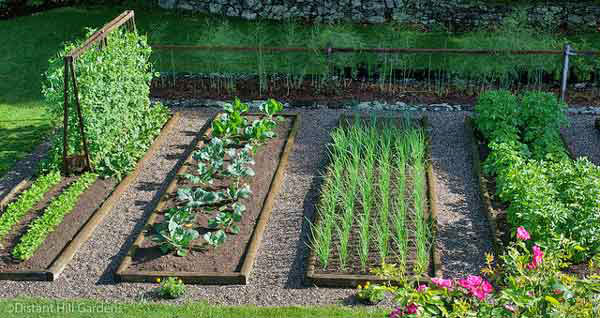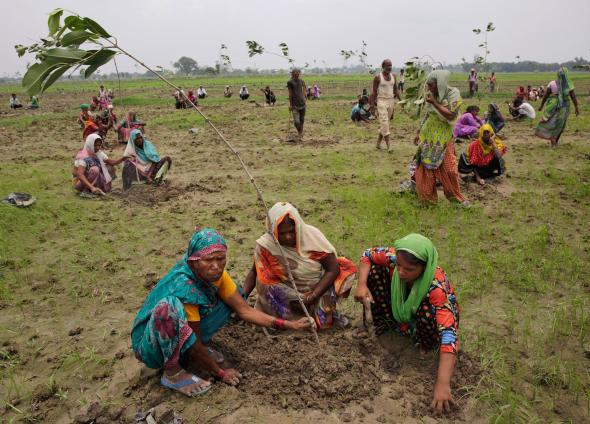Courtesy of Planet Natural
- If it’s getting cold and you have tomatoes still ripening on the vine — save your tomatoes! Pull the plants up and bring them inside to a warm dry place. Hang them up, and the tomatoes will ripen on the vine.
- Keep garden vegetables from getting dirty by spreading a 1-2 inch layer of mulch (untreated by pesticides or fertilizers) around each plant. This will also help keep the weeds down.
- Paint the handles of your gardens tools a bright, color other than green to help you find them amongst your plants. You can also keep a mailbox in your garden for easy tool storage.
- Compost needs time to integrate and stabilize in the soil. Apply two to three weeks prior to planting.
- There is an easy way to mix compost into your soil without a lot of back breaking work: Spread the compost over your garden in the late fall, after all the harvesting is done. Cover with a winter mulch such as hay or chopped leaves and let nature take its course. By spring, the melting snow and soil organisms will have worked the compost in for you.
- Like vining vegetables, but don’t have the room? Train your melons, squash, and cucumbers onto a vertical trellis or fence. Saves space and looks pretty too.
- Garden vegetables that become over-ripe are an easy target for some pests. Remove them as soon as possible to avoid detection.
- Onions are ready to harvest when the tops have fallen over. Let the soil dry out, harvest, and store in a warm, dry, dark place until the tops dry. Cut off the foliage down to an inch, then store in a cool, dry area.
- Over watering is worse than under watering. It is easier to revive a dry plant than try to dry out drowned roots.
- When planting a flower or vegetable transplant, deposit a handful of compost into each hole. Compost will provide transplants with an extra boost that lasts throughout the growing season.
- Insects can’t stand plants such as garlic, onions, chives and chrysanthemums. Grow these plants around the garden to help repel insects.
- Plants will do best if they are well suited to your growing area. Take some time to read up and choose plants accordingly.
- For easy peas, start them indoors. The germination rate is far better, and the seedlings will be healthier and better able to fight off pests and disease.
- If you’re short on space, garlic, leeks and shallots make excellent container plants. They tend to have few insect or disease problems and don’t require much room for roots.
- Another reason to use natural and organic fertilizers and soil amendments: earthworms love them! Earthworms are extremely beneficial in the vegetable garden; increasing air space in the soil and leaving behind worm castings. Do what you can to encourage earthworms in your soil.
- Water your garden in the early morning to conserve moisture loss and to help avoid powdery mildew and other fungal diseases that are often spread by high humidity levels.
- Some vegetables actually become better after a first frost, including kale, cabbage, parsnips, carrots, and Brussels sprouts.
- When transplanting tomatoes, cover the stem with soil all the way up to the first set of leaves. This greatly encourages root growth, making a stronger, healthier plant.
- Healthy soil means a thriving population of microbes, earthworms and other organisms. A soil that has “good tilth” will produce robust garden plants that are better able to resist pests and disease.
- A simple five percent increase in organic material (compost) quadruples the soil’s ability to store water.





